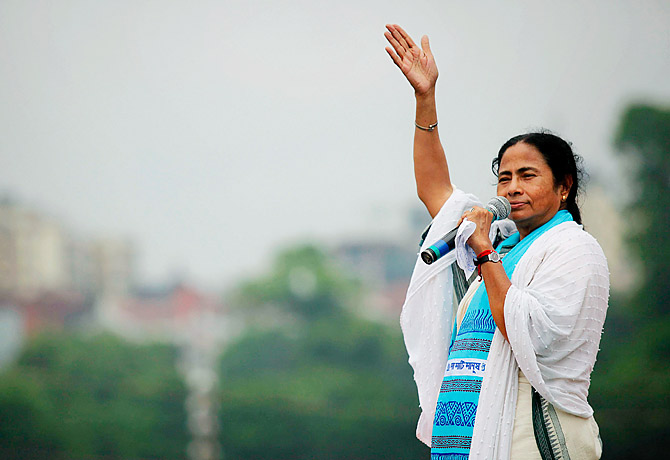
Though much of Indian society remains hidebound in patriarchy and tradition, strong women still prevail in the nation's political life. Mamata Banerjee rose to the fore last year when she and a movement she built from the grassroots wrested control of her home state of West Bengal, ending 3 ½ decades of sclerotic communist rule. Banerjee, 57, spent years struggling on the margins, her Trinamool Congress Party a feisty rabble compared with the leviathan of West Bengal's communists. Referred to by her supporters as Didi, or "elder sister," she was labeled by critics as a mercurial oddball and a shrieking street fighter. But ultimately she proved to be the consummate politician. Through successive elections, Banerjee steadily expanded her power base while chipping away at those of her opponents. Her lower-middle-class background was no obstacle in a country notorious for its dynasties. In New Delhi's back rooms, where political horse trading is the name of the game, she excelled. On the streets, she out-Marxed the Marxists. And as chief minister of her home state, she has emerged as a populist woman of action — strident and divisive but poised to play an even greater role in the world's largest democracy.
Tharoor is a TIME staff writer